Everything you need to know about World War I
More than 20 million deaths due to a wrong turnaround
Was the First World War caused by the amateur ambitions of an Austrian general? Why did he last so long, and had to lose thousands unnecessarily? And what did the men drive to undergo the horrors of the trenching front? World War I in seven questions and answers.
1. Who was guilty of the First World War?
Sometimes you have to start at the end. On June 28, 1919, Versailles came to a definitive end to the First World War. The peace treaty did not make any doubt as to who was guilty of the war. Article 231 of the treaty stated that Germany and his allies as perpetrators are responsible for all loss and damage caused by the war. "
The Second World War gave retroactivity to the negotiators in Versailles. That Hitler was the main guilty of this war. What was the difference between the corporal and the emperor? Was Germany not in 1914 as militaristic as 1939? Do not the sources indicate that when the purpose of the military staff was no less than a Griff nach der Weltmacht? Article 231 became the historical orthodoxy for a long time.
Certainly in the Netherlands traumatized by the occupation, we saw the First World War through the frosted glass window of the Second. According to Hans Andriessen, author of The Other Truth. A new vision of the origins of the First World War , that image is further strengthened by the fact that the Dutch read the most readable English books. But many British historians are chauvinistic, 'he says.British history is victorious history. '
In his book, Andriessen tries to correct that image. Germany was surrounded by enemies in his eyes. They tied together to destroy the empire as a superpower. The only defense was the attack.
"British history is victorious history"
That vision shares Andriessen with the Scottish historian Niall Ferguson. This is one step further in his book The Pity of War . Germany might then start the war in Europe, it was Britain that made a world war. And according to Ferguson, that was "the biggest mistake of modern history."
If England did not interfere, then, after a limited continental war, Eighty Years ago, a United Europe had emerged under German leadership, Hitler and Lenin had no chance and there was no Auschwitz or Goelagarchy.
Most of the peers are far from such if-history . But they are ferguson cs grateful for breaking the debate on the debt issue.
Many historians choose the shared debt. The superpowers were in charge of a system of compulsory treaties, obsessive armed forces and secret diplomacy. A life-threatening blend of nationalism, militarism and capitalism eventually led to a global catastrophe.
2. Is there actually a "blame"?

Art Image Source
"We do not want to believe that big events have minor causes," the famous historian AJP Taylor writes in The First World War . So we are looking for a guilty person with a master plan, also before the First World War.
But, says Taylor, none of the superpowers was out in war in 1914. They blued and threatened, assuming that the crisis would end with a sisser like ever before.
But this time it went wrong. European leaders became entangled in a system of alliances. Once balanced, it got a momentum that has to lead to war.
The bullet that disturbed the system came from the Bosnian-Serbian terrorist Gavrilo Princip. That shot dead on 28 June 1914 in Sarajevo Archduke Franz Ferdinand, the throne fortress of Austria-Hungary.
Vienna accused Serbia of complicity of the murder and action required. Belgrade refused to hear an ultimatum and promptly declared Austria-Hungary Serbia the war.
So far nothing wrong. Already two Balkan wars had passed the revue. But this time, a chain reaction made a world fire within two weeks of a local fire.
"Germany had promised Austria back cover and put the army in the highest state of preparedness. That led to France's mobilization. In a curse and sigh, half Europe was wearing a uniform"
That was the way. Russia helped and mobilized the faithful in Orthodox Serbia. Germany, in turn, had promised Austria back cover and also brought the army to the highest level of preparedness. That led to France's mobilization. In a curse and sigh, half Europe was wearing a uniform.
From then on, Taylor's war was inevitable. In every European capital, plans were made in which all troop movements were recorded in detail from day one of the mobilization, literally and figuratively, a track book to the front. Once started, the wagon charges had to roll men and equipment to their inevitable goal: war.
The German plan was the brainchild of Alfred Graf von Schlieffen. The strategy was simple: to prevent a war on two fronts, France had to be defeated before Russia was fully mobilized.
The only way to conquer Paris quickly was a circumferential movement. The fact that the neutrality of Belgium had to be violated was a nasty but inevitable occurrence. Time was the biggest enemy of the Schlieffen plan. From the mobilization, the German war machine continued on its own power.
On August 4, 38 days after the shot in Sarajevo, the first German boots marched into neutral Belgium and the First World War was a fact.
"The only way to conquer Paris quickly was a circumferential movement. The fact that the neutrality of Belgium had to be violated was a nasty but inevitable occurrence"
In recent years, several historians have made comments on Taylor's "War According to the Trackbook." According to John Keegan, politicians could pull the brake at any time by putting down the military advice. The fact that attempts failed to do so, according to him, was less military law than miscommunication and sabotage of war hitters.
In addition, very personal motives were involved, writes Hew Strachan, professor of history in Glasgow. The fatalist mood of the German Prime Minister in July 1914 was perhaps due to the death of his wife a few weeks earlier. And what about the Austrian field marshal Conrad Hötzendorff, who hoped that he could still marry another's wife as a hero?
And in addition to amorous ambitions, there is always the flat coincidence, which is on the verge of inevitability.
The best example of this is the driver of Franz Ferdinand. He drove a wrong street that day in Sarajevo, giving Principle a wonderful shot field, already on his way home due to lack of murderous possibilities. More than 20 million deaths due to a wrong turnaround.
3. How warlike was Europe in the early 20th century?
'I fell down on my knees and thanked heaven from an overflowing heart that gave me the happiness of living in this age.'
For example, Adolf Hitler remembered the first hours of the First World War. And he was not the only one. The big cities of the belligerent countries all offered the same view: a patriotic crowd expressed her joy and fighting skills. The young men left singing and smiling for a frisch und fröhliche Krieg.
This war spirit is still dominating the image of the summer of 1914. In recent years, some authors try to relativize this mythical enthusiasm. Perhaps, according to Niall Ferguson, the cities were indeed infected with warfare. Those were the middle class domain, always receptive to nationalism and related sympathies.
But in the countryside, where the lion's share of cannon feed came from, the mood was ambivalent. Propaganda was therefore indispensable. And so it sounded of stories about Germans who dropped children's hands in Belgium, raped nuns and even crucified people.
Not without result: thousands reported to die for king and country , often with the entire pub or factory department at once. The result of such "friend battalions" was that a single front-end hit was enough to immerse a whole village in mourning.
4. How stupid were WW1 military leaders?
Von Schlieffen died in 1913; The failure of his plan continued to save him. The German offensive began to prosper. But in sight of Paris, the march stopped. With British support, the French brought the Germans to the Marne.
Then the armies tried to pull the flank of the other or, at least, get the ports on the North Sea. Ypres had the infinite unlucky to be the preliminary finish of this race to the sea.
In October 1914, a fortified battle for the Flemish city ended in a stalemate. On both sides of the front the armies groove themselves. Temporary fortifications soon became permanent. After a few months there was a sophisticated system of trenches from the Channel coast to the Swiss Alps.
There were no military strides attached to it. The only thing they could think of breaking this stalemate was the opponent's defeat. The Germans took the initiative and decided to beat the French Murw at Verdun. A simple calculus taught that they had more soldiers, and so would eventually win.
"The Germans took the initiative and decided to beat the French Murw at Verdun"
For ten months Verdun lay under fire. In order to give the French some air, the British Commander-in-Chief, Douglas Haig, decided to make his own offensive.
1 July 1916, the beginning of the Battle of the Somme, still applies as the absolute lowest point in the history of the British army. Over 100,000 British soldiers marched in the direction of the German lines, a rain of steel and a certain death. Sixty thousand men left life or were injured. The site profit was almost nil.
This tragedy did not prevent Haig from waging an outbreak from Ypres in the summer of 1917. This 'Battle of Passendale' also became a drama. A generation of British men was finally smothered in blood and mud.
The meaninglessness of these massacres led to serious criticism of the Allied army leadership during the war. The generals were denied lack of inventiveness, but above all a total lack of respect for human life. Until today, the image of a army or lions led by donkeys .
Is this criticism right? Eventually, the generals learned their mistakes, and the French and the British won the war. But why did this take so long and thousands had to sneak unnecessarily?
Military historians seek the answer in the rigor of military organizations, where innovations clash on traditions and stubborn relationships. Criticism is easy, they find out from the knowledge afterwards about the course of the war. An army of lions led by incompetent donkeys is in their eyes 'a misleading caricature of reality'.
5. Why were the soldiers so loyal?
"Lice, rats, barbed wire, fleas, grenades, bombs, underground caves, bodies, blood, drink, mice, cats, artillery, dirt, bullets, mortar, fire, steel: that's what war is. It's the devil's work."
In these few rules, German artist Otto Dix crashed the horrors of the front. The hardships were terrible, on both sides. Nevertheless, the number of executions for mood or desertion was low. The interest in daily life at the front has recently grown. What did those men do to keep over the top again?
Comedy seems to be the key concept. The first loyalty of the frontier soldier did not go out to his country, his frost or his officer but to the men around him. Comedy was cultivated.
From the moment a recruit ended in the army, his life changed significantly. He left the civil society behind him and stepped into a close community with completely different standards and values. The unit of parish, factory or residential area was exchanged for regiment, division or peloton. The joint exercises and shared hardships conjured up a mutual bond that was unprecedentedly strong. A fellowship of the sword , in the words of poet WB Yeats.
6. Was World War I a world war?
Those men in the mud, on either side of a piece of no man's land - according to Paul Moeyes, the appeal of the First World War lies as a story. `The First World War is ideally suited for myth formation, 'says the author of Buiten Schot. Netherlands during the First World War . "Everybody always thinks about the trenches in Flanders and France. The fact that everything happened elsewhere is forgotten. "
The Schlieffen plan had to prevent a war on two fronts. It completely failed. While the war in the west was peeping and cracking - Im Westen Nichts Neues is the title of the famous novel by Erich Maria Remarque - the eastern front was in full swing.
Numerically, the Russian army was the strongest of Europe. But the troops that opened the attack on the German eastern flank in 1914 were badly trained, poorly guided and poorly equipped. The legend wants many soldiers not even to have their own rifle. Thus, there are more strong stories about the war in the East, which plead for thorough historical research.
"The Schlieffen plan had to prevent a war on two fronts but failed completely"
Badly equipped or not, the huge defeat of the Russians in August 1914 at Tannenberg was borne by blundering generals.
Successful were their colleagues in the south. Those who defeated the Austrians a week later at Lemberg. Both titan attacks demanded tens of thousands of lives. The tactics date from the century of Napoleon, the power of fire from that of the atomic bomb.
Personal experiences from the eastern front are scarce. The Russian footpath consisted of illiterate farmers. Perhaps Tannenberg, Lemberg, Lodz and Limanova-Lapanov sound less inaccurate in the ears than Ypres, Arras, Verdun and Passendale. The destruction of life was no lesser.
The battle between the emperors from the East did not make a world war from 1914-1918. Turkey's accession to the combatants in October 1914 gave the battle a more global appearance.
At the beginning of 1915, the Allies decided to disable this ally of Duistland. In April, the first troops landed on Gallipoli, a peninsula for the Turkish coast. Almost a year later, the last soldiers were evacuated. By that time, 46,000 men had given their lives for a completely unsuccessful campaign.
Many of the troops that fought on Gallipoli came from Australia and New Zealand. Also more exotic subjects from the British Commonwealth contributed to the war of the motherland: Chinese, Gurkha, Indians and Maori.
Precisely the colonial possessions caused a European conflict to tension the globe. Fought in Africa, in the Middle East (Lawrence of Arabia!) And on all worlds.
Only the Americans kept themselves apart for a long time. Only when the Germans announced the unlimited submarine war in 1917, President Woodrow Wilson assumed. Seven US ships were already on the seabed before the United States declared the war on April 6th. Much more global could not be the conflict.
7. Why does Germany lose WW1?
The end of the First World War is shrouded in even closer nails than the beginning. Why, after years of impasse, suddenly there was movement in the western front? How were the Germans finally defeated?
They had clear ideas about it immediately after the war. Left-wing revolutionaries at home, the brave soldiers set a dagger. Had the workers not forced the emperor to resign?
Hitler would be grateful to use this "cloud-laying legend". The sentiment that the empire was not defeated in the military but was inflated inside the interbellum was widely felt.
That was also understandable. In early 1918, the Germans did not feel bad at all. After the Russian Revolution, they could have imposed a very favorable peace in the East to the young Soviet Union.
This put an end to the war on two fronts. The troops that evacuated were successfully used to break the stalemate to the west. In March 1918 the war suddenly became mobile again. In a week, the imperial army managed to recall the Allies for sixty kilometers.
"With the arrival of the fresh Americans, the German soldier's morale fell below the freezing point"
But after that the rack was out. The supply of food and ammunition stopped, there were no reservists to solve the deadly tired troops. With the arrival of the fresh Americans, the morale of the German soldier fell below the freezing point.
Meanwhile, women and children were hungry by the ever-successful sea blockade. Germany did not lose the battle on the battlefield, but in the factories, it is modern historical insight. Not the imperial army depended on the Allies but the imperial economy.
More about the First World War
Libraries full are written about the First World War. A very readable standard work is by no means The First World War. An Illustrated History (London 1966) by AJP Taylor.
At this time, the best seller of John Keegan, The First World War (London 1998) is the leader. This book gives a clear picture of the whole war and is also translated to Dutch interested parties.
From the same year (seventy years after the ceasefire), the fiercer work of Niall Ferguson, The Pity of War (London 1998), dates back . In this book, the author tries to initiate new discussion through provocative theories.
The most recent review of Hew Strachan is:The First World War. To Arms (Oxford 2001). This first part, from a series of three, may offer less new angles, but is extremely readable.
The July crisis and the related theories are well described in J. Joll, The Origins of the First World War (London 1993).
Battlefield Tourists can get their heart on the book by Chrisje and Kees Brants,Fields of Wallerer. Travel guide to the First World War (Amsterdam 1993) and to Ypres 14/18. A visit to the 'Ypres Salient' (Veldhoven 1998) by R. Heijster.
Probably the most read novels about the Great War are handed by Pat Barker. She describes in her amazing trilogy, Regeneration (London 1991), The Eye in the Door (1993) and The Ghost Road (1995) the effects of the war on the soldiers, both on and behind the front.
Many readers are Robert Graves' personal experiences in Goodbye to all That (Harmondsworth 1960), filmed under the same title in 1930.
From the German side is the book of Erich Maria Remarque,Im Westes Nichts Neues (1929) is best known.
In the popular genre, the film by Peter Weir, Gallipoli (1981) is worth the effort. Splendidly filmed in 1997, Regeneration (MacKinnon), and Robert Graves Goodbye to All That was immortalized on celluloid in 1930.
Sources:
Link 1
Link 21
Link 3
Link 4
Link 5
Thanks for your time,
https://steemit.com/war/@braini/the-thirty-years-war-1618-1648-golden-age
https://steemit.com/military/@braini/impressive-pictures-of-military-actions-and-equipment
https://steemit.com/planes/@braini/top-10-wwii-s-best-fighter-planes
https://steemit.com/planes/@braini/fighter-planes-in-action
https://steemit.com/aircraft/@braini/the-f-16-fighting-falcon-review
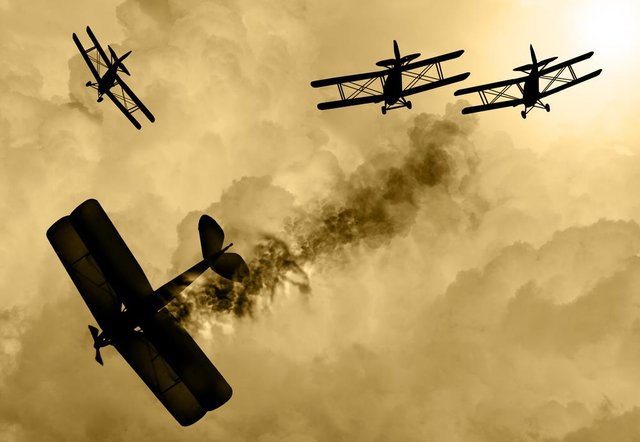
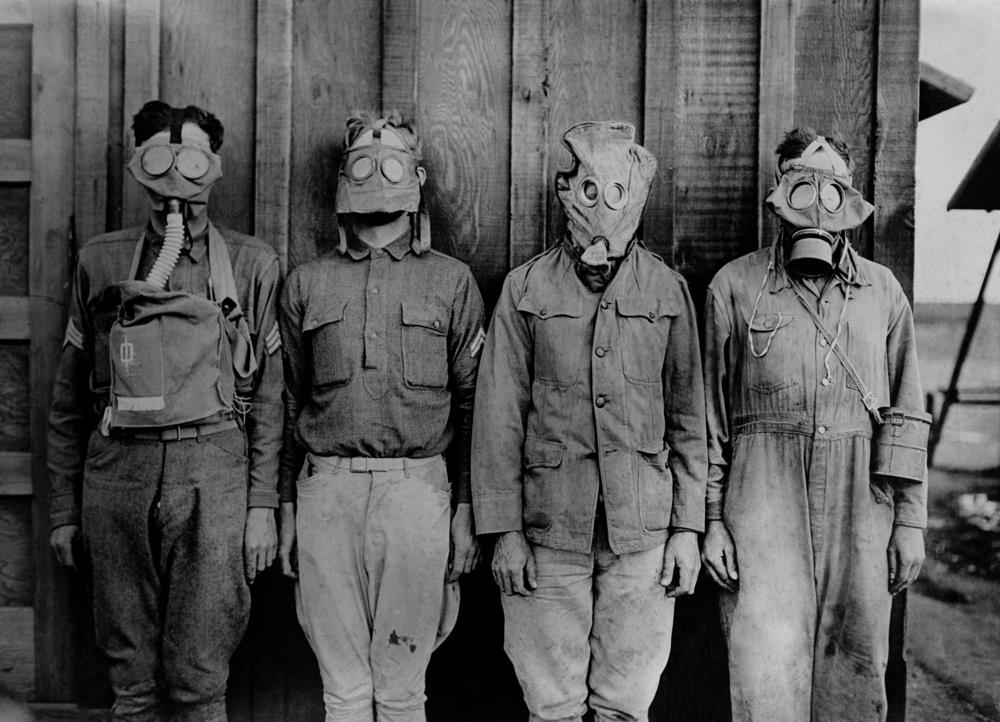
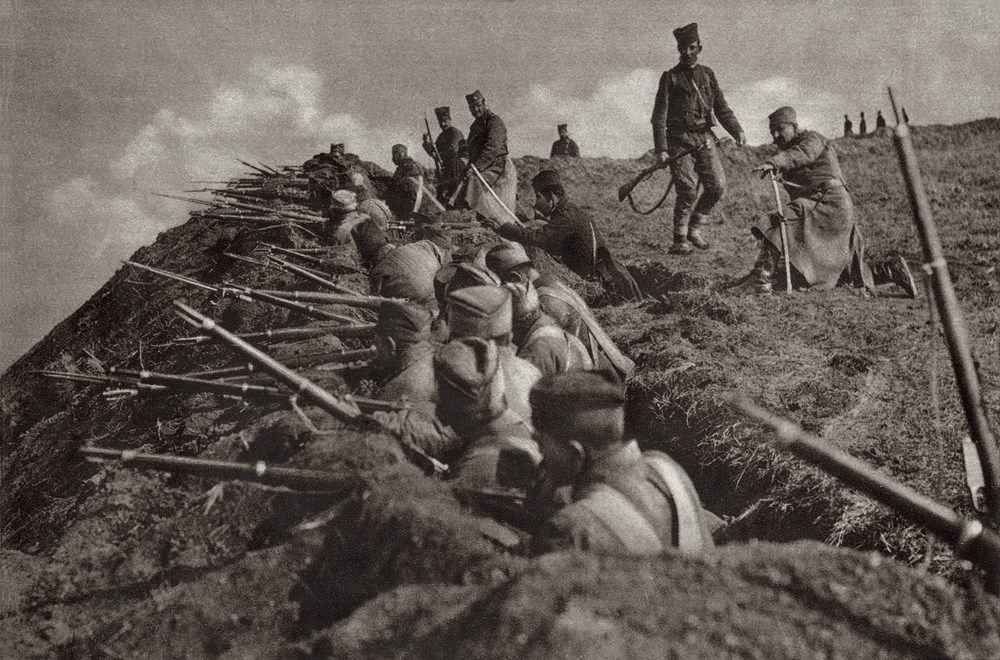
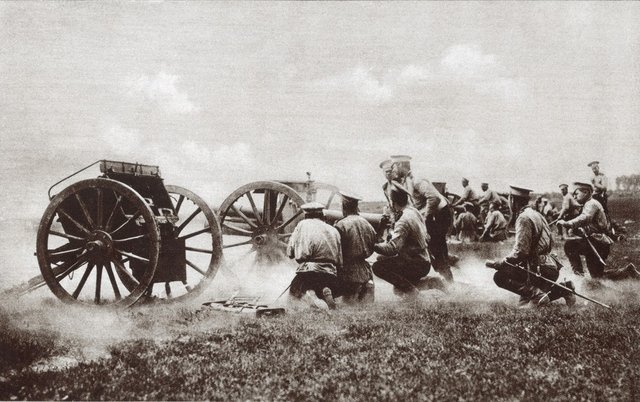
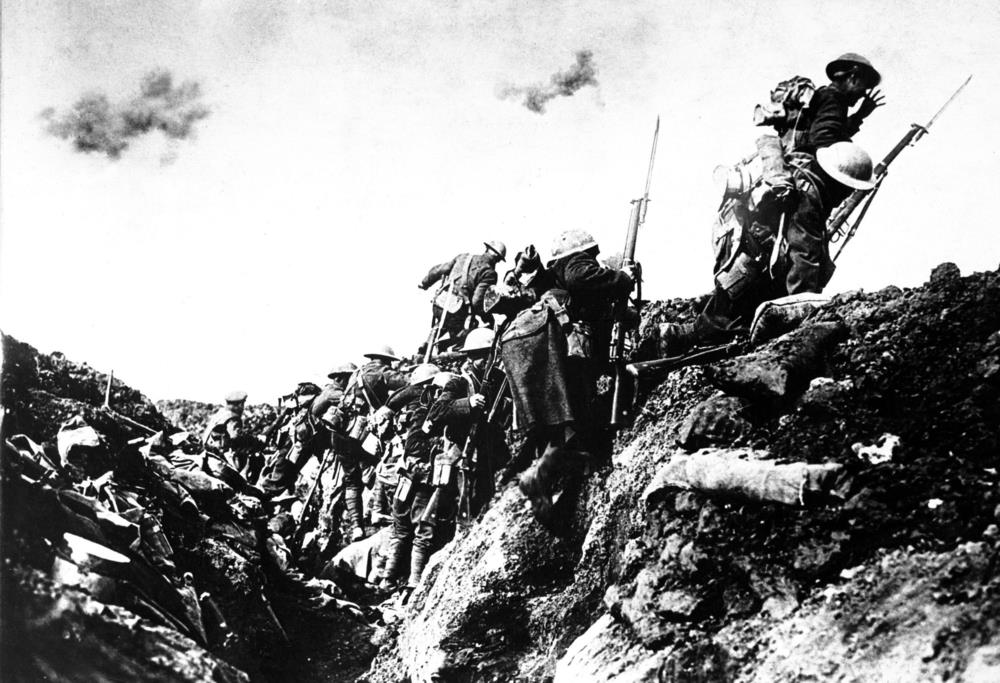
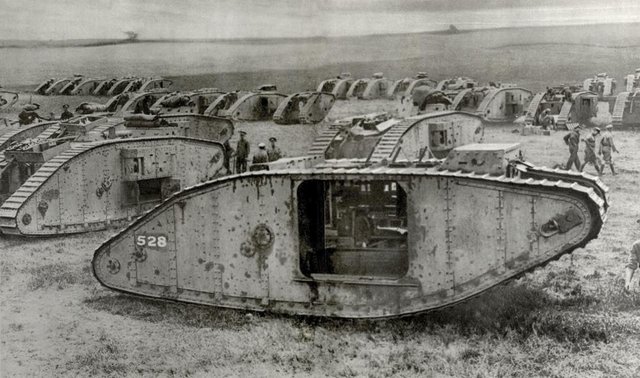
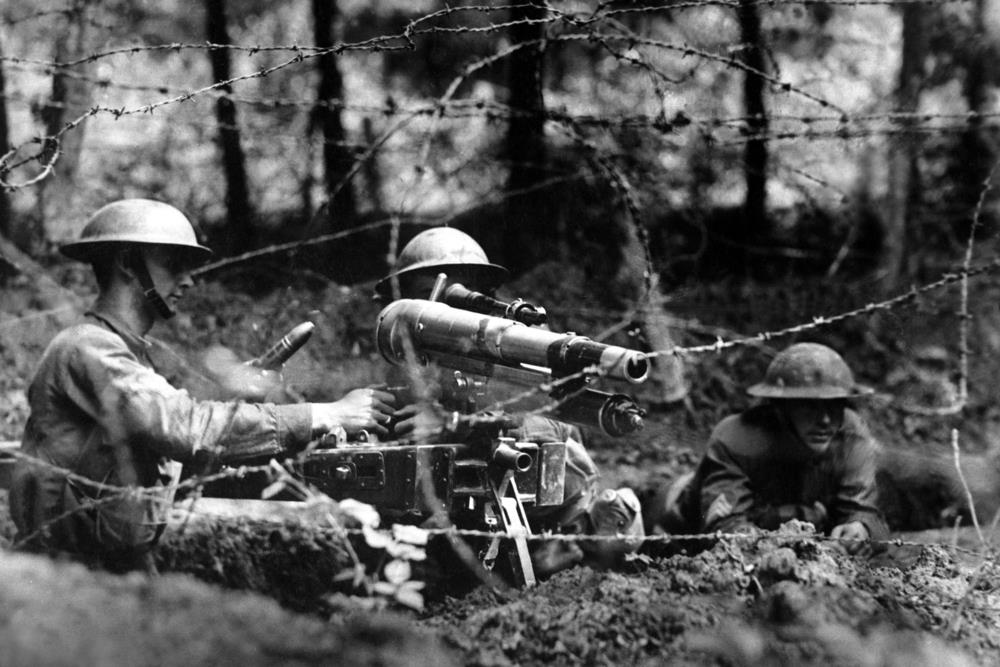

This post received a 3% upvote from @randowhale thanks to @braini! For more information, click here!
@braini Interesting Tale. Hope you obtain what you would like from this job. Have got a pleasant working day..
Thanks mam...
@braini Intriguing put up - many thanks . Have to be terrifying to own this issue..
Nice article. But i'm missing an important part: the Franco-Prussian war, which led to the unification of Germany. The Germans actually won this war and occupied Paris for a short period. My point is, there has been so many wars between Germans and French, that it won't surprise me that they will fight each other once more again. A final battle. The EU has been created to keep the peace between the two nations and at the moment tensions between France and Germany are rising over the EU policies.
Very Good post. Well written and well presented. History belongs to the victorious. There is no doubt about this. 😊 . I believe there are 3 truths to any war or conflict.
1 - there is no one cause that is responsible for the war. Many factors, over a period of time build up to it.
2 - All parties involved in the war share the blame. There is no one party to blame.
3 - the citizens of all nations involved , suffer the consequences and the violence of war.
I am an avid follower of art , history & psychology. World War 1 & II intrigue me.
Upvoted
This post recieved an upvote from minnowpond. If you would like to recieve upvotes from minnowpond on all your posts, simply FOLLOW @minnowpond
This post recieved an upvote from minnowpond. If you would like to recieve upvotes from minnowpond on all your posts, simply FOLLOW @minnowpond
Congratulations! This post has been upvoted from the communal account, @minnowsupport, by braini from the Minnow Support Project. It's a witness project run by aggroed, ausbitbank, teamsteem, theprophet0, someguy123, neoxian, followbtcnews/crimsonclad, and netuoso. The goal is to help Steemit grow by supporting Minnows and creating a social network. Please find us in the Peace, Abundance, and Liberty Network (PALnet) Discord Channel. It's a completely public and open space to all members of the Steemit community who voluntarily choose to be there.
Interesting information :) Thank you
@braini Thank you for the function, I invite you to evaluate my function..